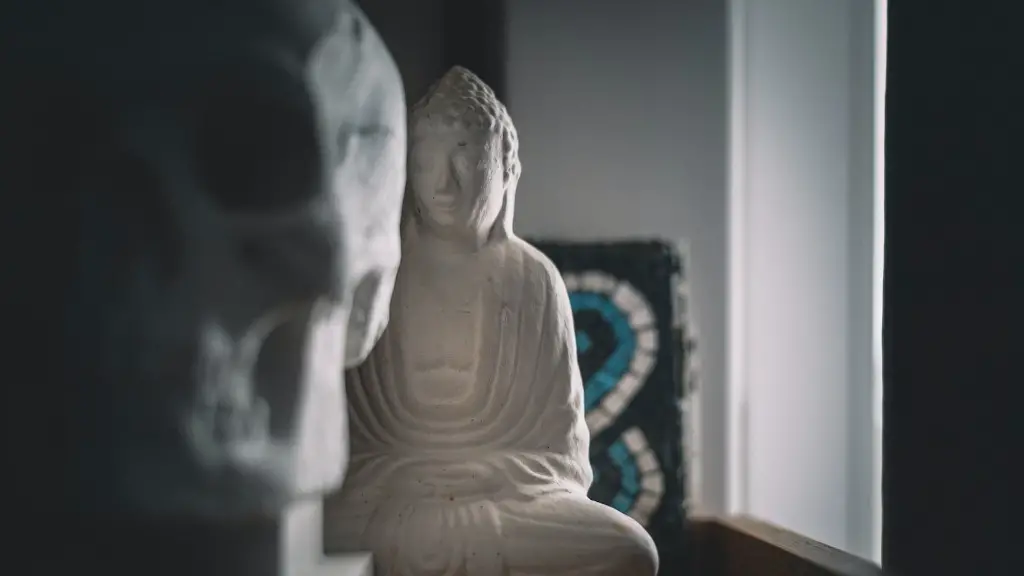There is no god but God, and Muhammad is the messenger of God. This is the central tenet of Islam. Muslims believe in one, unique, and incomparable God. The well-known expression of this belief is the Muslim declaration of faith, or shahada: “There is no god but God, and Muhammad is the messenger of God.” Muslims believe that God is the creator of all things, and that He is all-powerful and all-knowing.
Islam teaches that there is only one God, who has created the entire universe and is responsible for the moral guidance and protection of humanity. Muslims believe that God is just and merciful, and that human beings are accountable for their own actions.
What is the difference Allah and God?
In Islam, Allah is the one and only God, and is the most merciful and compassionate. Muslims believe that Allah is all-powerful and all-knowing. Allah is the creator of the universe and everything in it.
Since Vatican II, the Catholic Church has taught in different ways that Muslims and Christians do worship the same God. This is in line with the Church’s commitment to dialogue and ecumenism. On the one hand, the Church has emphasised the shared beliefs between Muslims and Christians, such as the belief in one God. On the other hand, the Church has also recognise the differences between the two religions, such as the different ways in which Muslims and Christians understand the nature of God.
What are Islam beliefs in God
Muslims believe in the Oneness of God. This means that God is the creator of all things and that He is all-powerful and all-knowing. God has no offspring, no race, no gender, no body, and is unaffected by the characteristics of human life.
Islam teaches that there is only one god, and that is Allah. Allah is the creator of the universe and is all-powerful. Muslims believe that Allah is the same god as the god of other Abrahamic religions.
Is Allah the same in Christianity?
There is a common misconception that Muslims and Christians worship different gods. However, both groups acknowledge that they believe in the same god, even though their understandings differ. For example, Arabic-speaking Christians call God “Allah,” and Gideon bibles, quoting John 3:16 in different languages, assert that “Allah” sent his son into the world. While there are some differences in how Muslims and Christians understand and worship God, ultimately, they both believe in the same divine being.
It is interesting to note that the term “Allah” was used to refer to the God of Christianity long before Islam arrived on the scene. This is because the term existed in the Arabic world long before Islam, and it is the Arabic equivalent of the Hebrew word Elohim. Today, Arabic Bibles still call God by the term Allah. This shows that Allah is not just the god of Islam, but is also the god of Christianity.
Do Muslims believe in the Bible?
According to Muslim scholars, the Christian canonical Gospels are not the original teachings of Jesus and have been corrupted over time. Some scholars have suggested that the Gospel of Barnabas may be the original Gospel.
Aramaic was the primary language of Jesus and the region in which he lived. It was a common language spoken throughout the Middle East during that time. Aramaic is a Semitic language, which means that it is related to Hebrew and other Semitic languages.
Who is Zeus in Islam
Manaf is a god, described by Muslim scholar At-Tabari as “one of the greatest deities of Mecca”, although little information is available about him. He is attested in the Hauran as Zeus Manaphos, equated with Zeus.
The Quran is clear that God will judge each person based on their deeds, and that heaven or hell awaits them in the afterlife. This belief is widespread among Muslims, with majorities in all but one of the countries surveyed believing in both heaven and hell.
What are 5 things Muslims believe?
The Five Pillars are the core beliefs and practices of Islam. They are: Profession of Faith (shahada), Prayer (salat), Alms (zakat), Fasting (sawm), and Pilgrimage (hajj).
The Profession of Faith is the belief that “There is no god but God, and Muhammad is the Messenger of God.” This is the central tenet of Islam.
Prayer is an important practice in Islam. Muslims perform five daily prayers, and Friday prayers are obligatory.
Almsgiving is another important pillar of Islam. Muslims are required to give 2.5% of their wealth to charity.
Fasting is required during the month of Ramadan. Muslims fast from dawn to dusk during this month, and they are also required to abstain from sexual activity, swearing, and violence.
The Pilgrimage, or hajj, is a once-in-a-lifetime obligation for Muslims who are able to make the journey to Mecca.
This chapter is called “The Unity” and it is the shortest chapter in the Quran. In it, Muhammad is teaching that there is only one God and that He is the only one worthy of worship. This chapter is important because it is the foundation of Islam.
Does Allah mean God
Allah is the Arabic word for God. It is used by Muslims to refer to the one and only God. Allah is the creator of the universe and the source of all goodness. Muslims believe that Allah is merciful and just, and that he will judge us according to our deeds. We must strive to live according to his will and to do good deeds in order to please him.
In Islam, the Holy Spirit is believed to be the Angel Gabriel. Muslims have explicitly rejected Christian doctrines of the Trinity from an early date. The Holy Spirit is not a person or god, but is a force sent by God to perform certain tasks. Muslims believe that the Holy Spirit was sent to reveal the Qur’an to Muhammad.
Do Muslims believe in the same God as Christians?
Most mainstream Muslims would generally agree they worship the same God that Christians — or Jews — worship. Zeki Saritoprak, a professor of Islamic studies at John Carroll University in Cleveland, points out that in the Quran there’s the Biblical story of Jacob asking his sons whom they’ll worship after his death. Jacob’s sons reply that they will worship the one God, just as their father does. This shows that mainstream Islam has always been accepting of other religions that worship the same God.
The word “Hindu” is an exonym, and while Hinduism has been called the oldest religion in the world, many practitioners refer to their religion as Sanātana Dharma (Sanskrit: सनातन धर्म, lit. ”the eternal way”). Sanātana Dharma is a composite of various traditions, ranging from Vedic and Tantric schools of thought to schools that developed in the medieval period such as Advaita Vedānta.
Conclusion
There is only one God in Islam, and His name is Allah. Muslims believe that He created the world and everything in it, and that He is the only One worthy of worship.
There is no god but God, and Muhammad is the messenger of God. Muslims believe in One God who has no partners, and who does not beget nor is He begotten.




